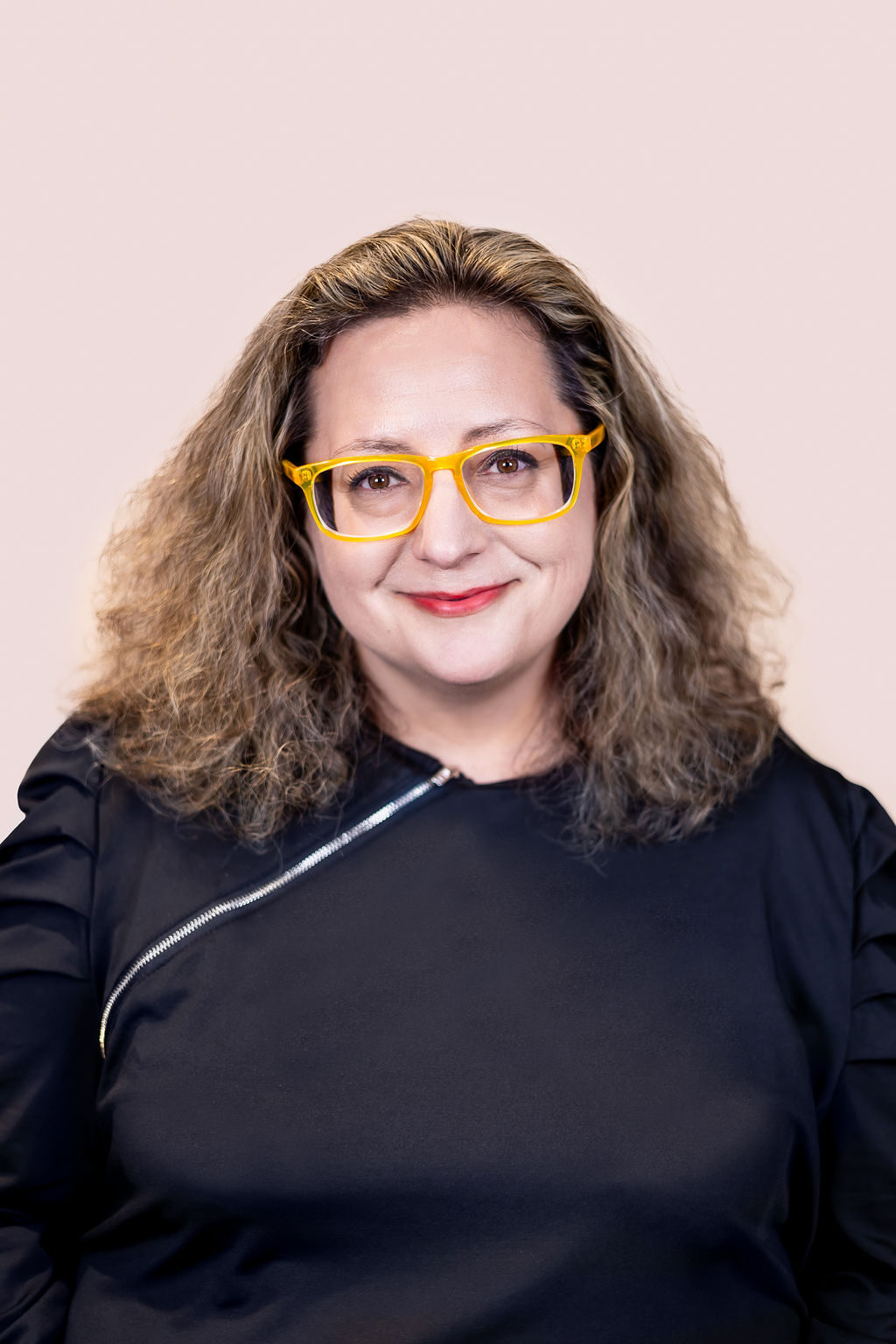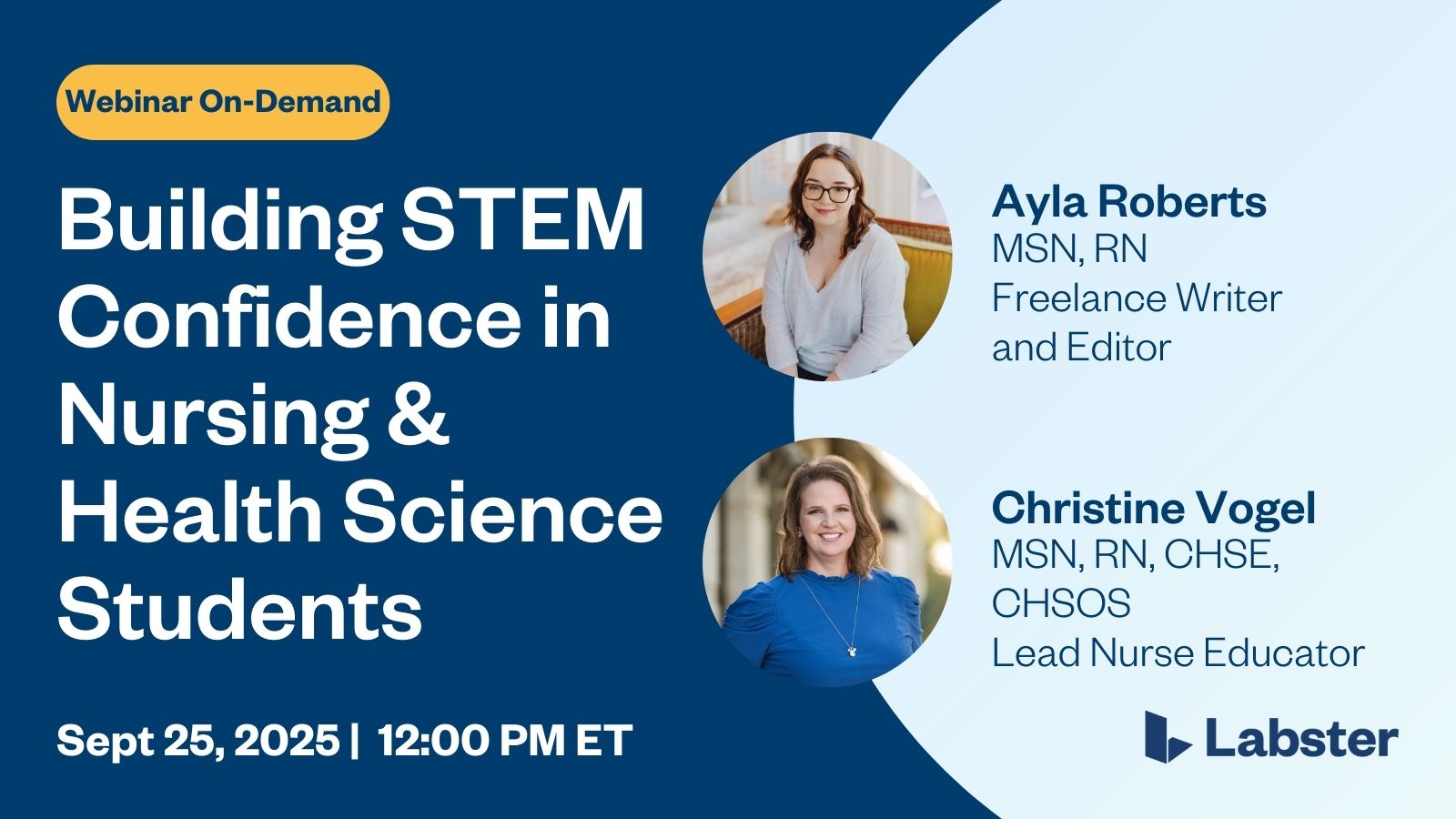Announcing the Winners of the 2021 Labster STEM Excellence Teacher of the Year Awards

Table of Contents
Name of the heading
We meet a lot of wonderful educators who put their students first and lead the way with innovative teaching approaches. This year we wanted to single out 10 individuals whose contributions have inspired us here at Labster. The 2021 Labster STEM Excellence in Teaching Awards honor 10 educators in high school, college, or university who demonstrate:
- Passion for teaching
- Advancement of experiential learning
- Creativity in curriculum design
- Innovation in instruction
- Commitment to student success
Please join us in celebrating our winners, profiled below!
Dr. Lori Banks, PhD, Assistant Professor of Biology at Bates College in Lewiston, Maine, USA

Dr. Lori Banks, PhD is a molecular biologist and Assistant Professor of Biology at Bates College where she is dedicated to instilling a love of biology and respect for the natural world while working to embrace anti-racism, equity and inclusive pedagogies to deliver an excellent STEM education in which all students will thrive. Dr. Banks is focused on student research, career readiness and optimizing the undergraduate transition to graduate school. She supports incoming first-year students with research experiences in her lab where they learn practical lab techniques using Labster and explore the key structural features of selected microbial proteins that can be exploited in the design of new antimicrobial agents. In 2020, Dr. Banks was named on a list of 1000 inspiring black scientists by Cell Mentor, a web resource that provides support and resources for emerging scientists in their career pathway. Her goals are to do good science and share her passion.
- Watch as Dr. Lori Banks discusses the her approach to making undergraduate STEM education more equitable in this session from the Labster SO: Connected Conference: https://youtu.be/nxUP_QWwu6M
Dr. Dave Cassie, EdD, Assistant Professor of Chemistry at the University of the Southern Caribbean in Trinidad

Dr. Dave Cassie is an Assistant Professor with the Department of Biological Sciences, School of Sciences, Technology and Allied Health at the University of the Southern Caribbean in Trinidad and Tobago. His diverse research interests include the online learning delivery mode for the Sciences and particularly in Chemistry. He has delivered various presentations regarding online learning including “Finding Common Ground for Reimaging Online Chemistry Learning for Better Futures” at the World Conference in Online Learning in Dublin, Ireland and “The future of Caribbean undergraduate science laboratories: Leading, teaching and learning using virtual simulations post COVID-19” at the Teaching Conference for Tertiary Educators.
- Watch as Dr. Cassie presents his research on Leading, Teaching, and Learning Post-COVD at the Labster SO: Connected Conference: https://youtu.be/NM1MSivmsMo
Mr. Allen Dale, High School Biology Teacher, Kuna High School in Kuna, Idaho, USA

Mr. Allen Dale teaches biology and ornithology at Kuna High School in Kuna, ID. He began teaching at Kuna High in 1987 and left after several years to pursue a career in industry. A decade later, he returned to Kuna High because he wanted to “influence students’ lives again.” Mr. Dale’s goal is teaching students how to learn, not just how to get good grades in biology. “As long as they become problem solvers, that’s the most important thing. They need to be lifelong learners, whether they become scientists or artists, mechanics or farmers.” Mr. Dale doesn’t just talk about the importance of lifelong learning - he is setting an example with his pursuit of a master's degree in entomology.
- Find out how Allen’s creative approach to getting classroom resources inspired us: https://www.labster.com/holiday-match/.
- Watch Allen describe his use of Labster virtual labs at Kuna High School: https://www.youtube.com/watch?v=qucQ392F1Ek
Ms. Gini Lea Ennis is a Secondary Science Teacher at Savannah-Chatham E-Learning Academy in Savannah, Georgia, USA

Gini Lea Ennis has been a Secondary Science Teacher for 22 years, most recently as a Virtual High School Science Teacher at Savannah Chatham E-Learning Academy. Gini Lea has always utilized blended learning in her classroom with the use of instructional technology, and now uses an online hybrid asynchronous model at SCELA to elevate her teaching. The incorporation of instructional technology has transformed her virtual classroom. The use of Labster in her AP Environmental Science and Biology courses has increased student engagement and assessment scores.
- Find out how Gini Lea Ennis uses student learning outcomes to make data-driven decisions in this video from the Labster SO: Connected Conference: https://youtu.be/l4-12Rot29A
Dr. Melody Esfandiari, PhD, Chemistry Lecturer, San José State University, San José, California, USA

Dr. Melody Esfandiari received her bachelor’s degree from San José State University, and after receiving her PhD from the University of California, returned to SJSU as a chemistry lecturer, teaching alongside some of the same instructors she had as a student! She is the coordinator for introductory chemistry classes and an advisor for the SJSU chemistry club, a student affiliate chapter of the American Chemical Society. She has also started a partnership with local community colleges and established a summer internship program to create opportunities for community college students to participate in undergraduate research. In 2019, Melody was recognized with the Outstanding Lecturer of the Year Award, across all departments at San José State University.
- Listen as Dr. Esfandiari describes her commitment to student-centered teaching on The Labster Podcast: https://the-labster-podcast.simplecast.com/episodes/research-on-labster-in-the-classroom
Dr. Seth Racey, PhD, Senior Lecturer in Applied Sciences at the University of Northumbria in Newcastle, UK

Dr. Seth Racey, PhD, teaches extensively on the Medical Diploma at the University of Northumbria. This program is run in collaboration with St. George’s University in Grenada in the Caribbean and the undergraduate and postgraduate courses for Biomedical Sciences and Biotechnology at Northumbria. He has a long-standing interest in using e-learning technologies to support his digital native students. He holds a BSc (Hons) in Animal Biology at the University of St. Andrew and a PhD in Genetics at the University of Leicester.
- Read how Dr. Racey teaches undergraduate biomedical sciences and biotechnology courses at scale: https://www.labster.com/case-studies/teaching-science-at-scale-with-labster
Dr. Lucia Santacruz Kozarinas, PhD, Associate Professor, Natural Sciences, Bowie State University, Bowie, Maryland, USA

Since the fall of 2016, Dr. Lucia Santacruz has been a member of the faculty in the Natural Sciences Department at Bowie State University. Here she combines her passion for teaching, mentoring and fostering the development of all aspects of STEM education and biomedical research with an active collaborative research program. She holds a PhD in Physiology and completed postdoctoral fellowships at the Cardiovascular Research Laboratory at UCLA and the Department of Biophysics and Molecular Physiology at Baylor College of Medicine.
- Listen to Dr. Santacruz describing the importance of being a faculty mentor to young scientists on the Labster podcast: https://the-labster-podcast.simplecast.com/episodes/how-to-be-a-faculty-mentor
Ms. Diane Sigalas, M.Ed., Biotechnology Teacher, Livingston High School, Livingston, New Jersey, USA

Ms. Diane Sigalas developed the curriculum for and currently teaches Biotechnology I and II at Livingston High School in Livingston, NJ. This unique course is an intensive, lab-focused course that qualifies students to take the NOCTI Biotechnology Workforce Competency Exam. She has taught a variety of other high school courses including Biology, Chemistry, Environmental Science, and Natural Disasters. Diane earned her undergraduate degree in Biology at Montclair State University and her master’s degree in Educational Leadership at The College of New Jersey.
- Watch Diane Sigalas as she discusses how she is working to help her students overcome learning loss in this panel session from the Labster SO: Connected Conference: https://youtu.be/l4-12Rot29A
Dr. Manuela Tripepi, PhD, Assistant Professor of Biology and Microbiology at Thomas Jefferson University in Philadelphia, Pennsylvania, USA

Dr. Manuela Tripepi is an Assistant Professor of Biology and the Microbiology Course Director at Thomas Jefferson University. She also focuses on curriculum development and pedagogy-oriented lines of research, including developing laboratory activities tailored to learning outcomes that help students successfully learn topics in biology. During the Covid-19 pandemic, in order to continue to offer undergraduate research experiences, she designed a COVID-friendly, adaptable protocol that aims to introduce students to the wildlife research opportunities surrounding their campus or home through direct observation and literature review.
- Watch as Dr. Manuela Tripepi describes how the flexibility of teaching with online simulations can help level the playing field for non-traditional students in this session from the Labster SO: Connected Conference: https://youtu.be/za8g7_PPn8I
Dr. Donald Wlodkowic, PhD, Associate Professor in Cell Biology and Toxicology at RMIT University in Melbourne, Australia

Dr. Donald Wlodkowic is an Associate Professor in Cell Biology and Toxicology and a head of the Neurotox Laboratory at the School of Science at RMIT University in Melbourne, Australia. He is one of Australia's eminent experts in experimental behavioural ecotoxicology and eco-neurotoxicology with interests spanning effects of industrial pollutants, neurotoxins and neuroactive drugs on central nervous systems. He is a passionate educator and university teacher with a strong motivation to innovate undergraduate and postgraduate bioscience teaching curriculums with next generation digital tools.
- Watch Dr. Donald Wlodkowic’s session on teaching in the metaverse at the Labster SO: Connected Conference: https://youtu.be/o_3U705i4qY
FAQs
Heading 1
Heading 2
Heading 3
Heading 4
Heading 5
Heading 6
Lorem ipsum dolor sit amet, consectetur adipiscing elit, sed do eiusmod tempor incididunt ut labore et dolore magna aliqua. Ut enim ad minim veniam, quis nostrud exercitation ullamco laboris nisi ut aliquip ex ea commodo consequat. Duis aute irure dolor in reprehenderit in voluptate velit esse cillum dolore eu fugiat nulla pariatur.
Block quote
Ordered list
- Item 1
- Item 2
- Item 3
Unordered list
- Item A
- Item B
- Item C
Bold text
Emphasis
Superscript
Subscript






